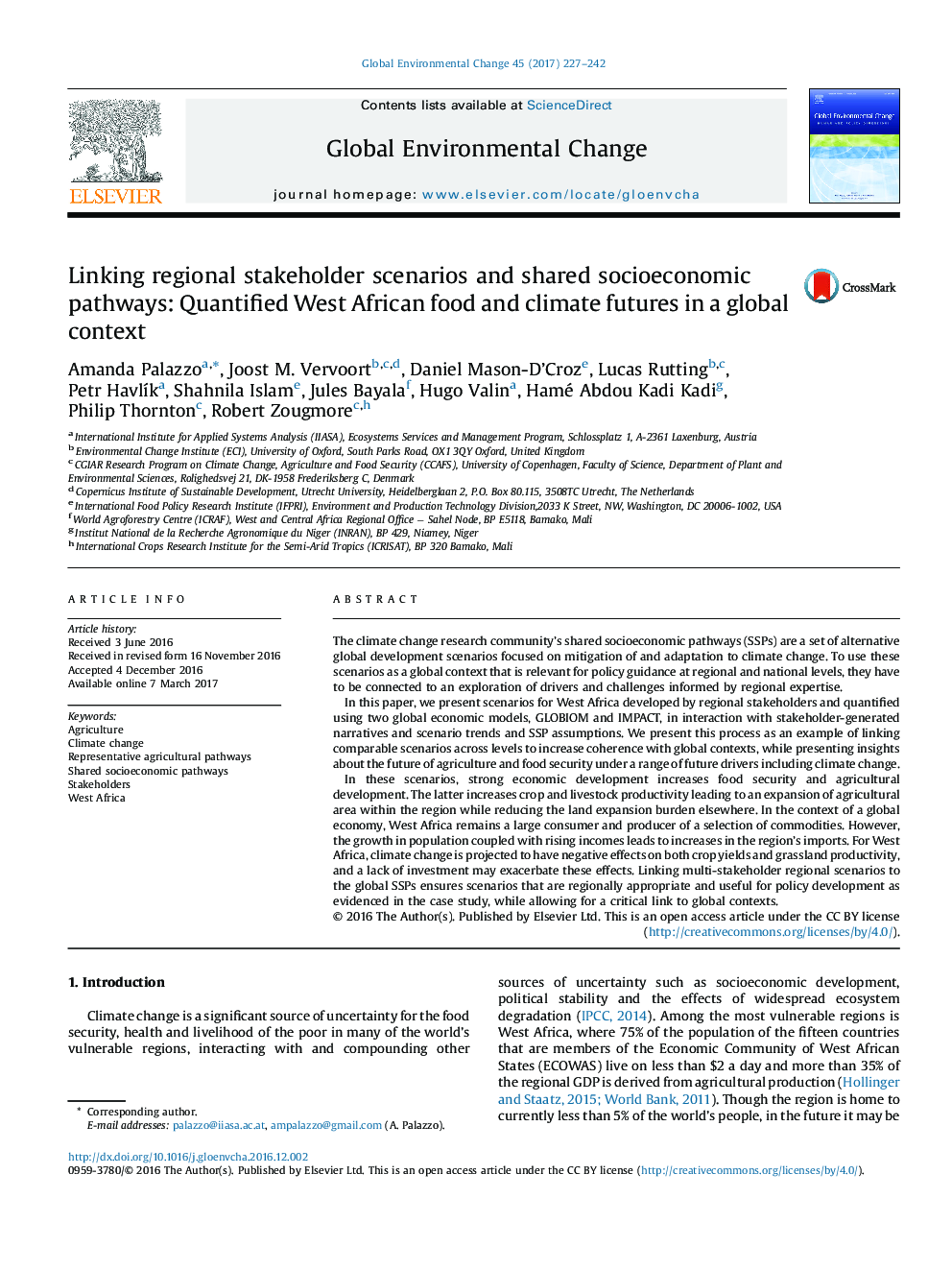| کد مقاله | کد نشریه | سال انتشار | مقاله انگلیسی | نسخه تمام متن |
|---|---|---|---|---|
| 5115916 | 1485113 | 2017 | 16 صفحه PDF | دانلود رایگان |
- Stakeholder driven regional scenarios for West Africa linked with SSPs.
- Make comparable scenarios coherent across levels through quantification.
- Negative effects of climate change on agriculture exacerbated by low investment.
- Increased productivity can lead to trade-offs between regional and global land use.
- West Africa cannot fully meet the growing demand for food and livestock feed.
The climate change research community's shared socioeconomic pathways (SSPs) are a set of alternative global development scenarios focused on mitigation of and adaptation to climate change. To use these scenarios as a global context that is relevant for policy guidance at regional and national levels, they have to be connected to an exploration of drivers and challenges informed by regional expertise.In this paper, we present scenarios for West Africa developed by regional stakeholders and quantified using two global economic models, GLOBIOM and IMPACT, in interaction with stakeholder-generated narratives and scenario trends and SSP assumptions. We present this process as an example of linking comparable scenarios across levels to increase coherence with global contexts, while presenting insights about the future of agriculture and food security under a range of future drivers including climate change.In these scenarios, strong economic development increases food security and agricultural development. The latter increases crop and livestock productivity leading to an expansion of agricultural area within the region while reducing the land expansion burden elsewhere. In the context of a global economy, West Africa remains a large consumer and producer of a selection of commodities. However, the growth in population coupled with rising incomes leads to increases in the region's imports. For West Africa, climate change is projected to have negative effects on both crop yields and grassland productivity, and a lack of investment may exacerbate these effects. Linking multi-stakeholder regional scenarios to the global SSPs ensures scenarios that are regionally appropriate and useful for policy development as evidenced in the case study, while allowing for a critical link to global contexts.
279
Journal: Global Environmental Change - Volume 45, July 2017, Pages 227-242
